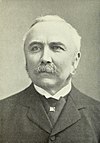
The Liberal Party was one of the two major political parties in the United Kingdom, along with the Conservative Party, in the 19th and early 20th centuries. Beginning as an alliance of Whigs, free trade–supporting Peelites, and reformist Radicals in the 1850s, by the end of the 19th century, it had formed four governments under William Ewart Gladstone. Despite being divided over the issue of Irish Home Rule, the party returned to government in 1905 and won a landslide victory in the 1906 general election. Under prime ministers Henry Campbell-Bannerman (1905–1908) and H. H. Asquith (1908–1916), the Liberal Party passed reforms that created a basic welfare state. Although Asquith was the party leader, its dominant figure was David Lloyd George.

Joseph Chamberlain was a British statesman who was first a radical Liberal, then a Liberal Unionist after opposing home rule for Ireland, and eventually was a leading imperialist in coalition with the Conservatives. He split both major British parties in the course of his career. He was the father, by different marriages, of Nobel Peace Prize winner Austen Chamberlain and of Prime Minister Neville Chamberlain.

Sir Henry Campbell-Bannerman was a British statesman and Liberal Party politician who was Prime Minister of the United Kingdom from 1905 to 1908 and Leader of the Liberal Party from 1899 to 1908. He also was Secretary of State for War twice, in the cabinets of Gladstone and Rosebery. He was the first First Lord of the Treasury to be officially called the "Prime Minister", the term only coming into official usage five days after he took office. He remains the only person to date to hold the positions of Prime Minister and Father of the House at the same time, and the last Liberal leader to gain a UK parliamentary majority.
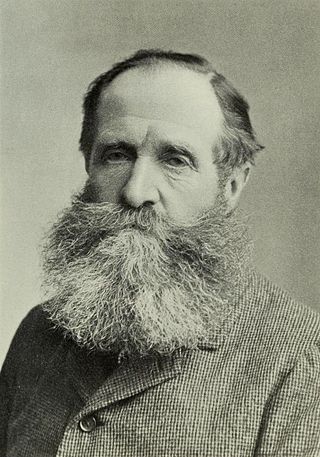
John Poyntz Spencer, 5th Earl Spencer, known as Viscount Althorp from 1845 to 1857, was a British Liberal Party politician under, and close friend of, prime minister William Ewart Gladstone. He was twice Lord Lieutenant of Ireland.

Archibald Philip Primrose, 5th Earl of Rosebery, 1st Earl of Midlothian was a British Liberal Party politician who served as Prime Minister of the United Kingdom from March 1894 to June 1895. Between the death of his father, in 1851, and the death of his grandfather, the 4th Earl of Rosebery, in 1868, he was known by the courtesy title of Lord Dalmeny.

Spencer Compton Cavendish, 8th Duke of Devonshire,, styled Lord Cavendish of Keighley between 1834 and 1858 and Marquess of Hartington between 1858 and 1891, was a British statesman. He has the distinction of having held leading positions in three political parties: leading the Liberal Party, the Liberal Unionist Party and the Conservative Party in either the House of Commons or the House of Lords. After 1886 he increasingly voted with the Conservatives. He declined to become prime minister on three occasions, because the circumstances were never right. Historian and politician Roy Jenkins said he was "too easy-going and too little of a party man." He held some passions, but he rarely displayed them regarding the most controversial issues of the day.

Lord Randolph Henry Spencer-Churchill was a British aristocrat and politician. Churchill was a Tory radical and coined the term "Tory democracy". He participated in the creation of the National Union of the Conservative Party.

Sir William George Granville Venables Vernon Harcourt, was a British lawyer, journalist and Liberal statesman. He was Member of Parliament for Oxford, Derby then West Monmouthshire and held the offices of Home Secretary and Chancellor of the Exchequer under William Ewart Gladstone before becoming Leader of the Opposition. A talented speaker in parliament, he was sometimes regarded as aloof and possessing only an intellectual involvement in his causes. He failed to engender much emotional response in the public and became only a reluctant and disillusioned leader of his party.

Robert Offley Ashburton Crewe-Milnes, 1st Marquess of Crewe,, known as The Honourable Robert Milnes from 1863 to 1885, The Lord Houghton from 1885 to 1895 and as The Earl of Crewe from 1895 to 1911, was a British Liberal politician, statesman and writer.

The 1895 United Kingdom general election was held from 13 July to 7 August 1895. The result was a Conservative parliamentary majority of 153.
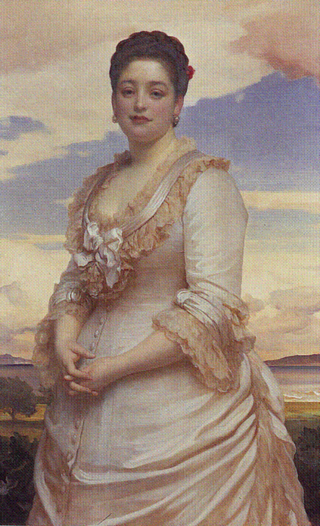
Hannah Primrose, Countess of Rosebery was the daughter of Baron Mayer de Rothschild and his wife Juliana. After inheriting her father's fortune in 1874, she became the richest woman in Britain. In 1878, Hannah de Rothschild married Archibald Primrose, 5th Earl of Rosebery, and was thereafter known as the Countess of Rosebery.
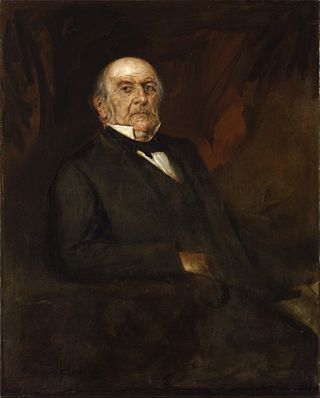
The third Gladstone ministry was one of the shortest-lived ministries in British history. It was led by William Ewart Gladstone of the Liberal Party upon his reappointment as Prime Minister of the United Kingdom by Queen Victoria. It lasted five months until July 1886.
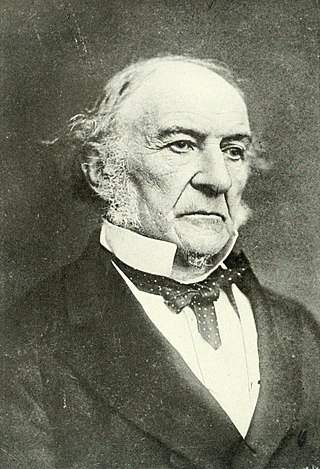
William Ewart Gladstone was the Liberal prime minister of the United Kingdom of Great Britain and Ireland on four separate occasions between 1868 and 1894. He was noted for his moralistic leadership and his emphasis on world peace, economical budgets, political reform and efforts to resolve the Irish question. Gladstone saw himself as a national leader driven by a political and almost religious mission, which he tried to validate through elections and dramatic appeals to the public conscience. His approach sometimes divided the Liberal Party, which he dominated for three decades. Finally Gladstone split his party on the issue of Irish Home Rule, which he saw as mandated by the true public interest regardless of the political cost.
The Newcastle Programme was a statement of policies passed by the representatives of the English and Welsh Liberal Associations meeting at the annual conference of the National Liberal Federation (NLF) in Newcastle upon Tyne in 1891. The centrepiece of the Newcastle Programme was the primacy of Irish Home Rule, but associated with it were a raft of other reforms, in particular: taxation of land values; abolition of entail; extension of smallholdings; reform of the Lords; shorter parliaments; district and parish councils; registration reform and abolition of plural voting; local veto on drink sales; employers' liability for workers' accidents and disestablishment of the Church of England in Wales and Scotland.
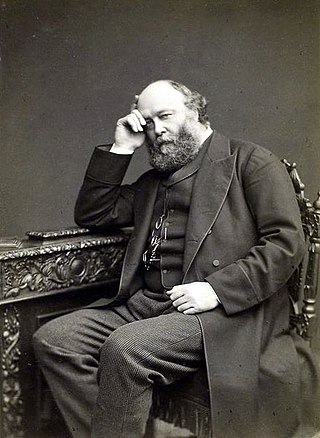
The vote of no confidence in the second Salisbury ministry occurred when the Conservative government of Robert Cecil, the Marquess of Salisbury decided to meet Parliament after the general election despite not winning a majority. The government presented a Queen's Speech, but was defeated on 11 August 1892 when the House of Commons carried by 350 to 310 an amendment moved by the opposition Liberal Party declaring that Her Majesty's "present advisers" did not possess the confidence of the House. After the vote Salisbury resigned and Liberal Party leader William Ewart Gladstone became Prime Minister for the fourth time.
The 1899 Osgoldcross by-election was a parliamentary by-election for the British House of Commons constituency of Osgoldcross in the West Riding of Yorkshire held on 5 July 1899.
The Liberal Imperialists were a faction within the British Liberal Party in the late 1890s and early 1900s, united by views regarding the policy toward the British Empire. They supported the Second Boer War which a majority of Liberals opposed, and wanted the Empire ruled on a more benevolent basis. The most prominent members were R. B. Haldane, H. H. Asquith, Sir Edward Grey and Lord Rosebery. The group adopted a formal identity under the title "The Imperial Liberal Council", the inaugural meeting of which was held on 10 April 1900 at the Westminster Palace Hotel. That meeting was chaired by Robert William Perks. Stephen Koss described Perks`s role in the group as: "It was not Rosebery who recruited Perks as first-lieutenant, but Perks who recruited Rosebery as captain". In his 1979 paper, Thomas Boyle identified the numerical strength of the Imperialists among the Liberal Party`s representation in the House of Commons as being 51 out of a total 189 immediately prior to the 1900 general election; 53 out of a total 184 immediately after that general election; and 76 out of a total 213 at the time of the 1905 dissolution of Parliament.
The 1886 Derby by-election was a parliamentary by-election held for the House of Commons constituency of Derby, the county town of Derbyshire on 9 February 1886.
The Liberal League was a grouping within the British Liberal Party from 1902 until 1910, with Lord Rosebery as its president and H. H. Asquith, Edward Grey and Henry Fowler as its vice-presidents. It consisted largely of Liberal Imperialists and its purpose was to give unity to those Liberals who disliked the policies of the Liberal leader, Sir Henry Campbell-Bannerman.

















